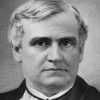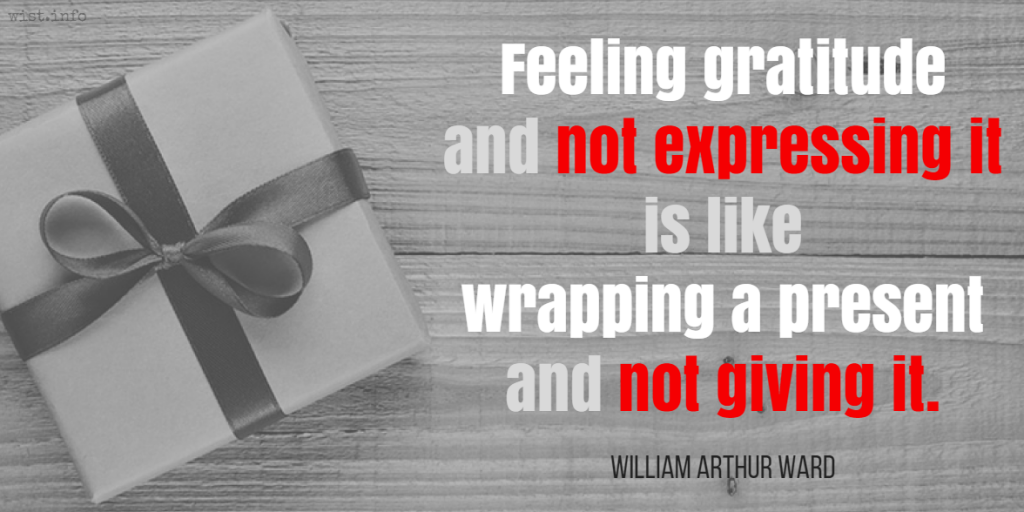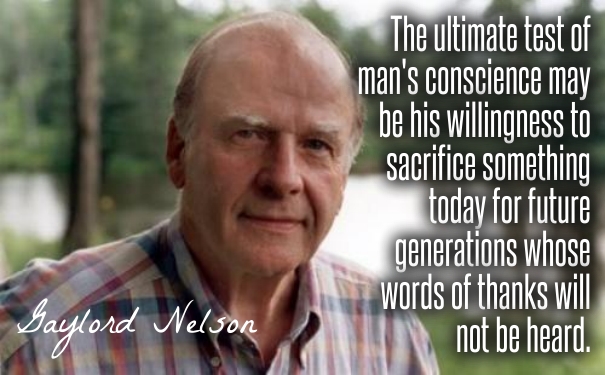Iz it charity tew giv tew a thankless cuss in need? certainly; jest az mutch az it would be to save a drouning cow.
[Is it charity to give to a thankless cuss in need? Certainly; just as much as it would be to save a drowning cow.]
Josh Billings (1818-1885) American humorist, aphorist [pseud. of Henry Wheeler Shaw]
Everybody’s Friend, Or; Josh Billing’s Encyclopedia and Proverbial Philosophy of Wit and Humor, ch. 132 “Affurisms: Chips” (1874)
(Source)
Quotations about:
thanks
Note not all quotations have been tagged, so Search may find additional quotes on this topic.
Can I forget your many favours? Nay.
Why don’t I mention them? Because you do.
If I begin, some one is sure to say
“Your patron told me all he did for you”;
Friend there are tasks cannot be done by two;
Shall this be yours or mine? for I submit
However great a gift, there nothing due
To any giver who shall boast of it.[Quae mihi praestiteris memini semperque tenebo.
Cur igitur taceo, Postume? Tu loqueris.
Incipio quotiens alicui tua dona referre,
Protinus exclamat ‘Dixerat ipse mihi.’
Non belle quaedam faciunt duo: sufficit unus
Huic operi: si vis, ut loquar, ipse tace.
Crede mihi, quamvis ingentia, Postume, dona
Auctoris pereunt garrulitate sui.]Martial (AD c.39-c.103) Spanish Roman poet, satirist, epigrammatist [Marcus Valerius Martialis]
Epigrams [Epigrammata], Book 5, epigram 52 (5.52) (AD 90) [tr. Pott & Wright (1921), “Self-Praise”]
(Source)
"To Postumus." (Source (Latin)). Alternate translations:
Thy gifts to me I thinke of, and still shall.
Why then do I not speake of them at all?
Thou dost. Where ere I tell thy charitie,
Tis answer'd straight, himselfe has told it me.
This work befits not both; one is enough;
If thou wouldst have me speake, be silent thou.
For (trust me) wert thou nere so liberall,
The givers talking would destroy it all.
[tr. May (1629), ep. 53]
What thou conferr'st on me I do
Remember, and shall think on, too.
Why therefore do I hold my tongue?
Cause, Posthumus, thou ne'er hast done.
As often as I go to treat
of these thy gifts to them I meet,
'T is presently replied, "Forbear,
He whisper'd it into my ear."
Two men some things cannot do well:
One person may suffice to tell,
and do this work: if it may please
That I shall speak, then hold thy peace.
For prithee, Postumus, believe,
Though that thy gifts are great to give
All thanks must perish, and are lost,
When authors their own actions boast.
[tr. Fletcher (1656)]
Your favors to me I remember well;
But do not mention them; because you tell.
Whenever I begin, I'm answer'd strait,
"I heard from his own mouth, what you relate."
Two ill become the business of but one;
Be you but silent, I will speak alone.
Great are your gifts; but when proclaim'd around,
The obligation dies upon the sound.
[tr. Hay (1755), ep. 53]
The services you have rendered me I do not forget, and will always keep them in my mind. How happens it, Posthumus, that I am silent? It is because you talk. Do I begin to expatiate on your favours, I am told, "I heard all about it from himself." Some things are not handsomely performed by two; one person is enough to relate kindness; if you wish me to speak, you must remain silent. The merit of gifts, however great they be, is lost by the garrulity of the giver.
[tr. Amos (1858), ch. 3, ep. 78; ep. 53]
Your services to me I remember, and shall never forget Why then am I silent about them, Postumus? Because you yourself talk of them. Whenever I begin to speak to any one of your favours, he immediately exclaims, "He has told me of them himself." There are certain things which cannot be well done by two people; one is enough in this case. If you wish me to speak, keep silence yourself. Believe me, Postumus, gifts, however great, are deprived of their value by garrulity on the part of the donor.
[tr. Bohn's Classical (1859)]
I'm grateful for your favors;
They'll never be forgot.
You wonder why I'm dumb about 'em?
Just because you're not.
Whenever I start telling
Of kindnesses you'd done,
The tale, I find, you'd quite concluded
Long ere I'd begun.
Now two men spoil the business
That one does well alone.
If I 'm desired to open my mouth,
Kindly shut your own.
[tr. Nixon (1911)]
Your bounty to me I remember and shall always keep in mind. Why, then, and I silent about it, Postumus? You speak of it. As often as I begin to report to someone your presents, he at once exclaims, "He himself had told me." These are things which two persons do not do nicely: one suffices for this work' if you want me to speak, be you yourself silent. Trust me; gifts, however great, Postumus, lose their value by the chattering of the giver.
[tr. Ker (1919)]
Grateful for all your gifts I still shall be;
"Why then be silent?" Well, you speak for me.
If to a friend your kindness I report,
With, "Yes, he told me so" he cuts me short.
Some tasks are not so suitable for two,
So thank you, Postumus, I'll wait for you.
Believe me, gifts, however rich they be,
Lose all their value by loquacity.
[tr. Francis & Tatum (1924), #251]
I remember all you have done for me and shall ever keep it in mind. Why then do I say nothing about it, Postumus? You talk. Whenever I start to tell somebody of your generosity, he exclaims at once: "He tole me that himself." Some things are not nicely done by two. One is enough for this work. If you want me to talk, you must hold your tongue. Believe me, Postumus, the most magnificent of gifts are nullified by the garrulity of the giver.
[tr. Shackleton Bailey (1993)]
You are my patron, I would give you praise,
But when talk of your virtues I would raise,
I'm told you have already laid them out.
Where I would whisper, you your merits shout.
We must more prudently divide our labor
To have efficient impact on our neighbor.
If I'm to praise you, you must hold your peace,
Or give me from my gratitude release.
Your gifts do not give me the power to do
Promotion constantly undone by you.
You undermine my prized veracity
With puffings of your own loquacity.
[tr. Wills (2007)]
I'll always cherish what you’ve done for me.
Why don’t I speak of it? Because you do.
Whenever I tell someone of your bounty,
he cries at once: “He told me of it, too!”
Some things two can’t do well; just one suffices.
You must keep mum, if you want me to gush.
Believe me, Postumus, the greatest gifts
are canceled when the giver just won't hush.
[tr. McLean (2014)]
About your gifts I'd love to gush,
Instead, I feel I have to hush.
When I tell people, they don't doubt it:
You've already bragged about it.
Maybe we should coordinate
Who praises your largesse of late.
But gifts do lose their gleam and such
When givers praise themselves too much.
[tr. Hill (2023)]
Maybe the only thing worse than having to give gratitude constantly all the time, is having to accept it.
William Faulkner (1897-1962) American novelist
Requiem for a Nun, Act 2, sc. 1 [Temple] (1951)
(Source)
Don’t be afraid to thank a servant. Do so quietly, but unmistakably, whenever thanks are in order.
Minna Antrim (1861-1950) American epigrammatist, writer
Don’ts for Bachelors and Old Maids (1908)
(Source)
The wise man would rather see men needing him than thanking him.
[El sagaz más quiere necessitados de sí que agradecidos.]
Baltasar Gracián y Morales (1601-1658) Spanish Jesuit priest, writer, philosopher
The Art of Worldly Wisdom [Oráculo Manual y Arte de Prudencia], § 5 (1647) [tr. Jacobs (1892)]
(Source)
(Source (Spanish)). Alternate translations:
A Man of Parts had rather meet with those who depend upon him, than that are thankfull to him.
[Flesher ed. (1685)]
He who knows, desires more that man shall need him than thank him.
[tr. Fischer (1937)]
He who is truly shrewd would rather have people need him than thank him.
[tr. Maurer (1992)]
When asked what ages quickly, he replied, “Gratitude.”
[ἐρωτηθεὶς τί γηράσκει ταχύ, “χάρις,” ἔφη.]
Aristotle (384-322 BC) Greek philosopher
Attributed in Diogenes Laërtius, Lives and Opinions of Eminent Philosophers [Vitae Philosophorum], Book 5, sec. 18 [tr. Mensch (2018)]
(Source)
(Source (Greek)). Alternate translations:
Once he was asked what grew old most speedily, and he replied, “Gratitude.”
[tr. Yonge (1853), sec. 11]
Being asked, "What is it that soon grows old?" he answered, "Gratitude."
[tr. Hicks (1925)]
When he was asked what grows old quickly, he said "thanks."
[tr. @sentantiq (2016)]
Do not be chary of appreciation. Hearts are unconsciously hungry for it.
Phillips Brooks (1835-1893) American clergyman, hymnist
“Destruction and Fulfilment,” Sermon 12, Twenty Sermons, 4th Series (1887)
(Source)
Sermon on Matt. 17.
To Herbert Westbrook, without whose never-failing advice, help, and encouragement, this book would have been finished in half the time.
P. G. Wodehouse (1881-1975) Anglo-American humorist, playwright and lyricist [Pelham Grenville Wodehouse]
A Gentleman of Leisure, Dedication (1910)
(Source)
The ultimate test of man’s conscience may be his willingness to sacrifice something today for future generations whose words of thanks will not be heard.
Gaylord Nelson (1916-2005) American politician and environmentalist
“Ah, Wilderness! Save It,” New York Times (4 Sep 1984)
(Source)
I believe that appreciation is a holy thing, that when we look for what’s best in the person we happen to be with at the moment, we’re doing what God does; so in appreciating our neighbor, we’re participating in something truly sacred.
Fred Rogers (1928-2003) American educator, minister, songwriter, television host ["Mister Rogers"]
Commencement Address, Marquette College (May 2001)
(Source)
Rogers used the same comment at the Middlebury College commencement.
I now perceive one immense omission in my Psychology— the deepest principle of Human Nature is the craving to be appreciated, and I left it out altogether from the book, because I had never had it gratified till now.
William James (1842-1910) American psychologist and philosopher
Letter to his Philosophy 2A class at Radcliffe College (6 Apr 1896)
The class had sent him a potted azalea at Easter. Full letter:
Dear Young Ladies, I am deeply touched by your remembrance. It is the first time anyone ever treated me so kindly, so you may well believe that the impression on the heart of the lonely sufferer will be even more durable than the impression on your minds of all the teachings of Philosophy 2A. I now perceive one immense omission in my Psychology—the deepest principle of Human Nature is the craving to be appreciated, and I left it out altogether from the book, because I had never had it gratified until now. I fear that you have let lose a demon in me, and that all my actions will now be for the sake of such rewards.
















